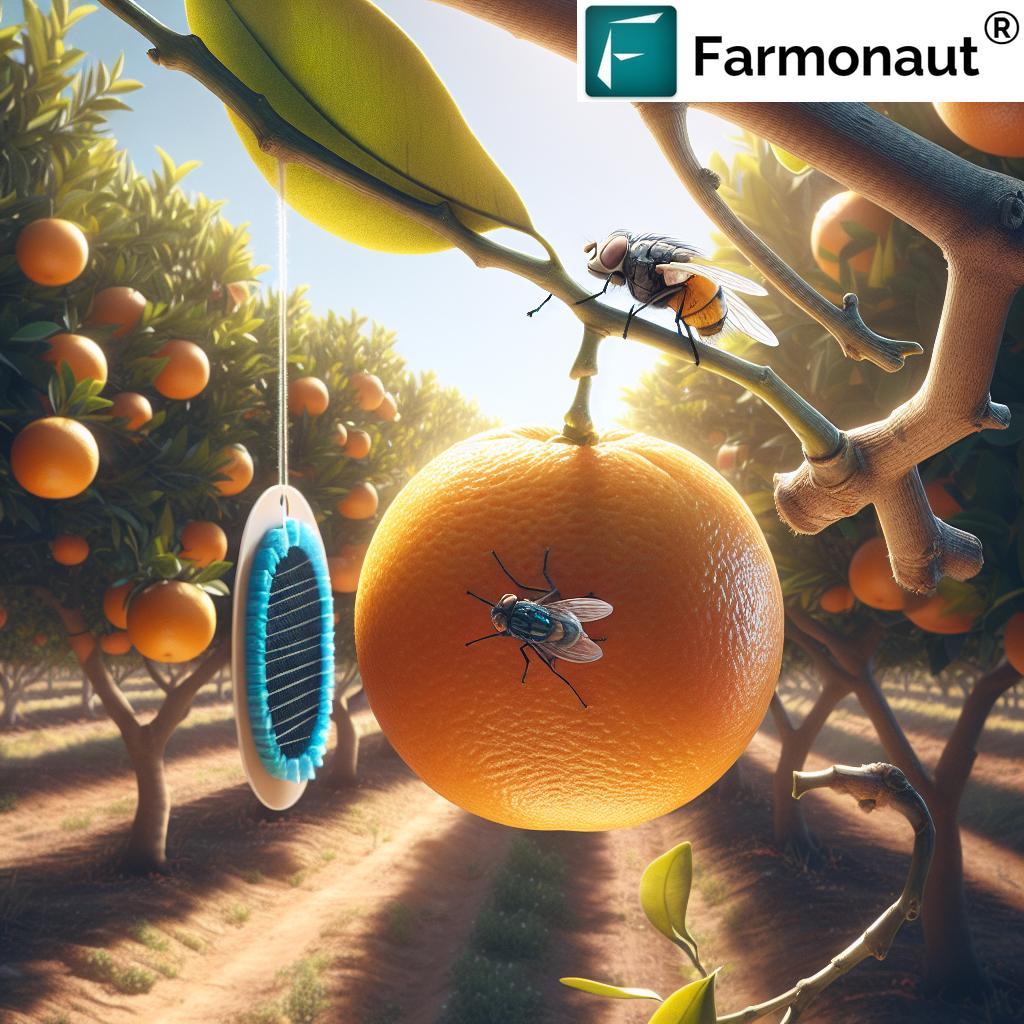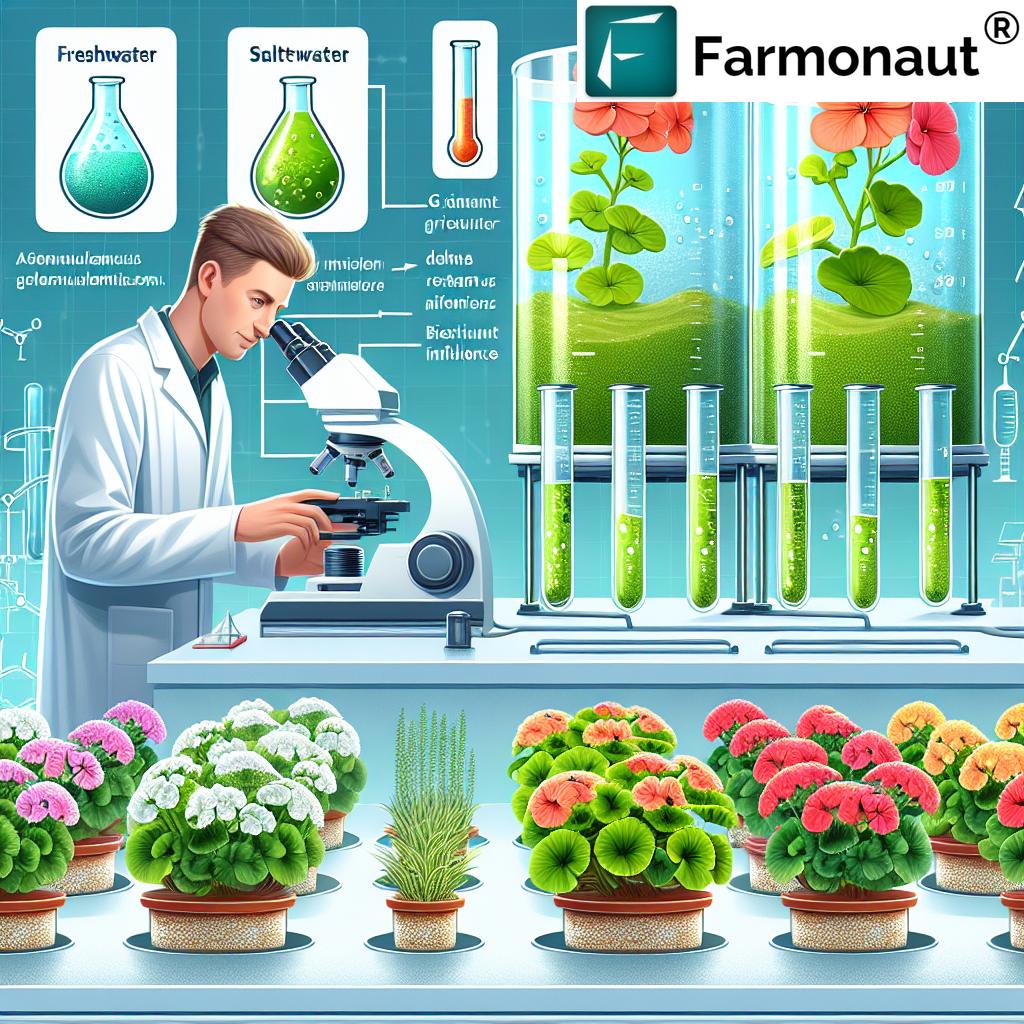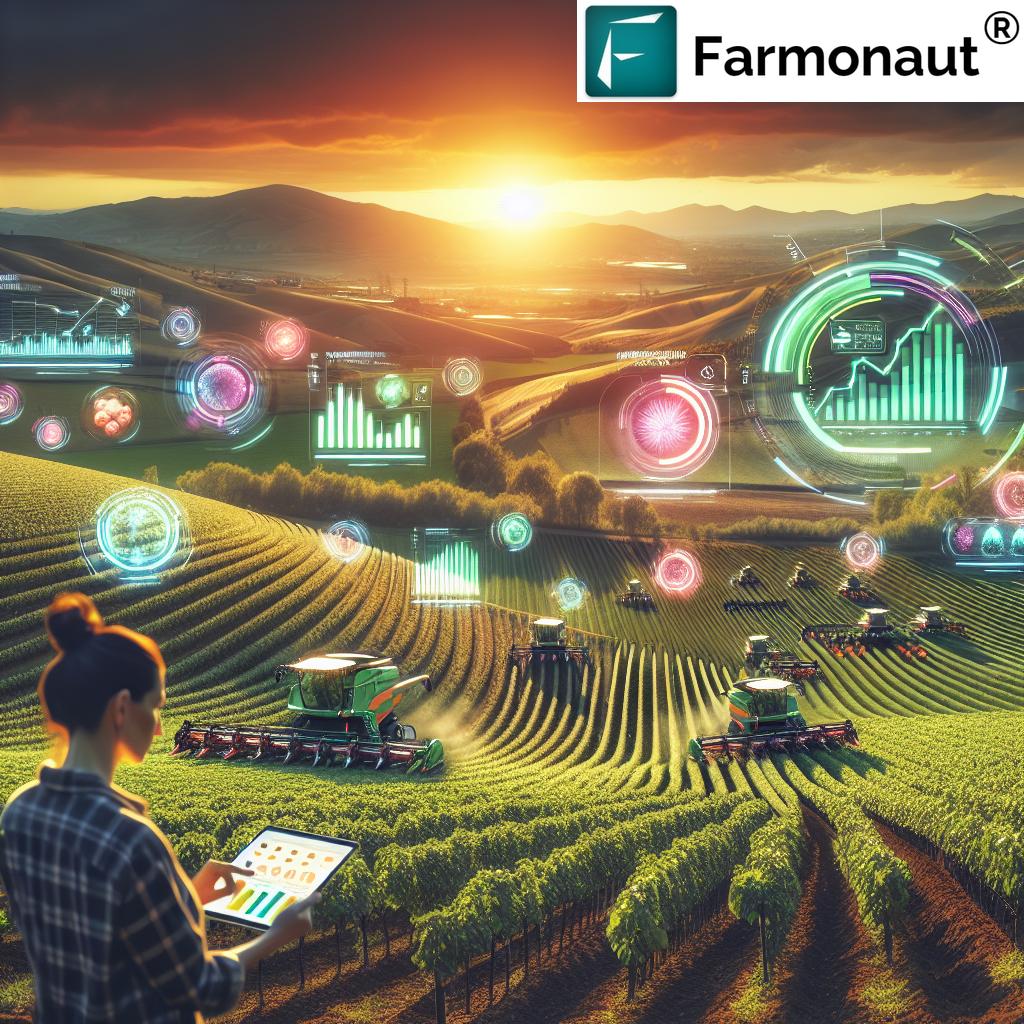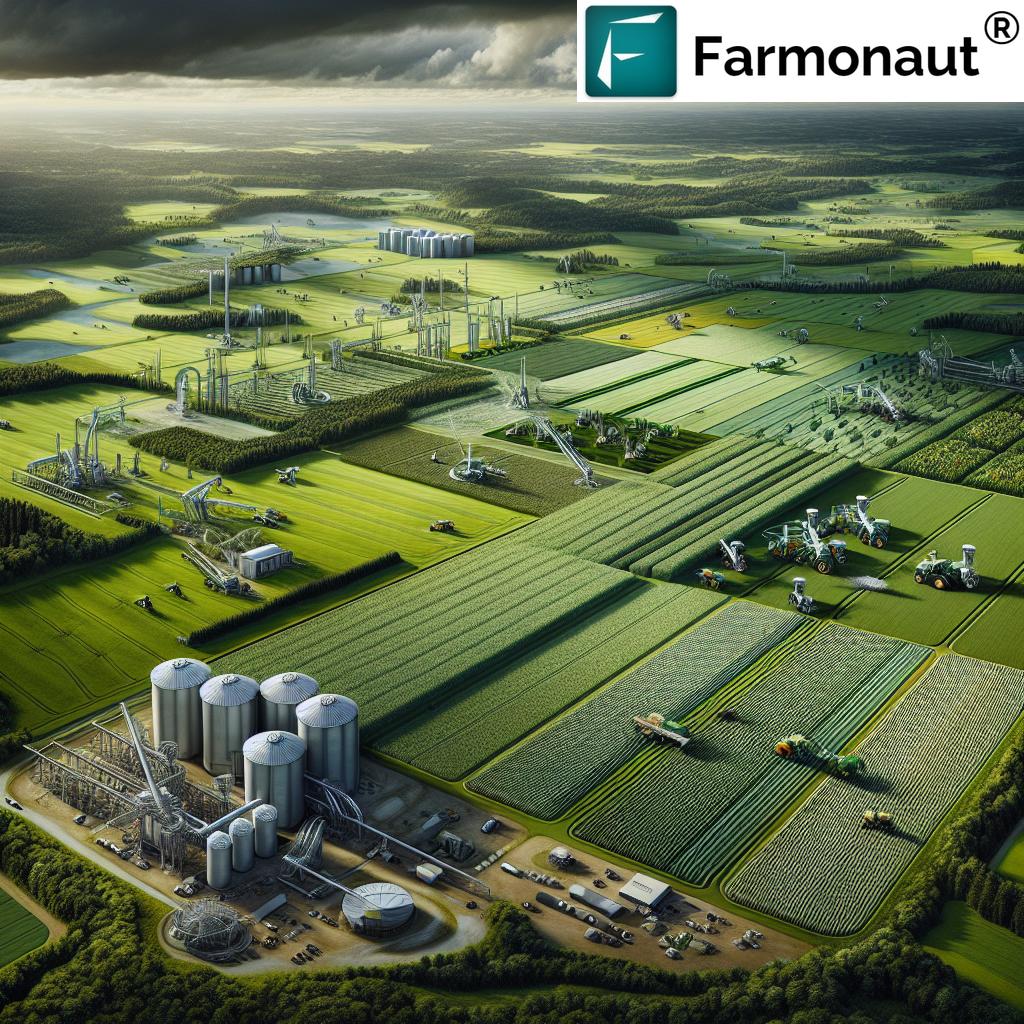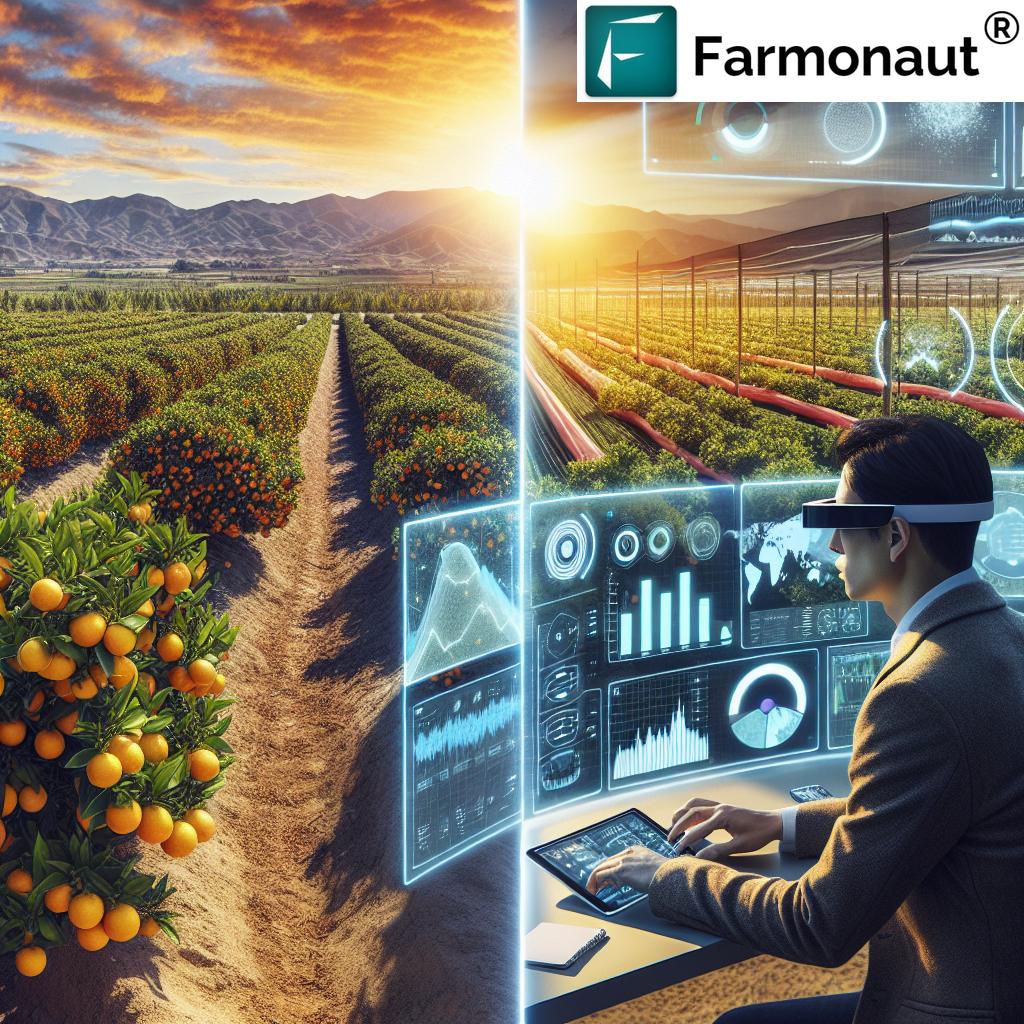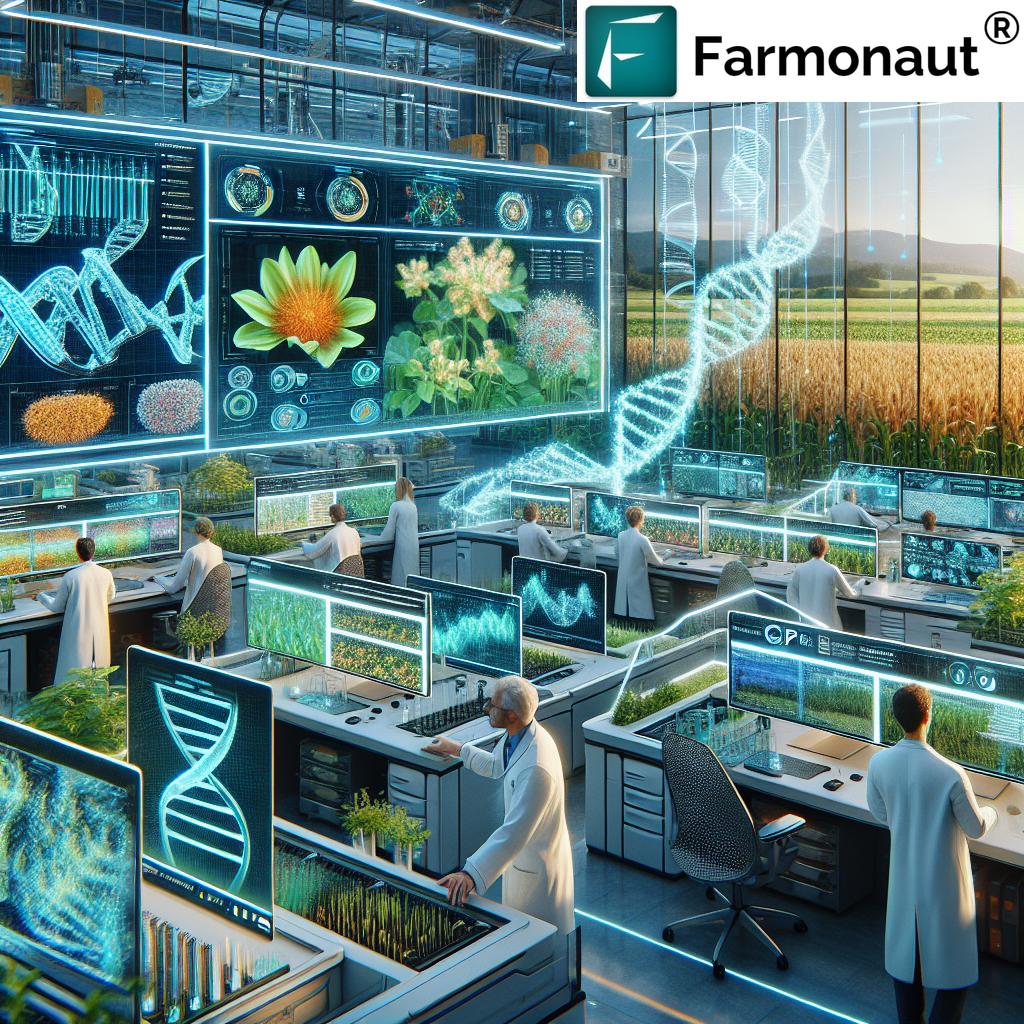How Farmonaut’s Smart Farming Solutions Enhance European Food Safety and Agricultural Risk Management
“EFSA oversees food safety for over 500 million EU citizens, ensuring high standards across the entire supply chain.”
In the ever-evolving landscape of European agriculture, the intersection of technology and traditional farming practices has given rise to a new era of food safety and agricultural risk management. At the forefront of this revolution is the European Food Safety Authority (EFSA), working tirelessly to ensure the highest standards of food safety across the continent. In this comprehensive exploration, we delve into how innovative solutions, particularly those offered by Farmonaut, are reshaping the agricultural sector and bolstering Europe’s food security.
The Role of EFSA in European Food Safety
The European Food Safety Authority plays a pivotal role in safeguarding the health and well-being of over 500 million EU citizens. As the cornerstone of food safety regulation in Europe, EFSA’s responsibilities extend far beyond mere oversight. Let’s examine the multifaceted approach EFSA takes to ensure food safety and manage agricultural risks:
- Risk Assessment: EFSA conducts thorough scientific evaluations of potential threats to the food supply chain.
- Policy Advice: The agency provides evidence-based recommendations to EU policymakers, influencing regulations that shape the agricultural landscape.
- Stakeholder Collaboration: EFSA works closely with national food safety agencies, research institutions, and industry representatives to create a comprehensive safety net.
- Public Communication: Transparent communication of food-related risks and safety measures to the public is a key priority for EFSA.
The agency’s commitment to these core functions has established a robust framework for European food safety. However, the challenges of modern agriculture demand innovative solutions to complement EFSA’s efforts.
Farmonaut: Pioneering Smart Farming Solutions
Enter Farmonaut, a cutting-edge agricultural technology company that’s revolutionizing the way we approach farming and food safety. By leveraging advanced satellite-based farm management solutions, Farmonaut is addressing critical challenges in European agriculture. Let’s explore how Farmonaut’s technologies align with and enhance EFSA’s mission:
- Real-time Crop Health Monitoring: Farmonaut’s satellite imagery provides farmers with up-to-the-minute insights into crop health, enabling early detection of potential issues that could compromise food safety.
- AI-driven Advisory Systems: The Jeevn AI system offers personalized recommendations, helping farmers make informed decisions that align with EFSA’s safety standards.
- Blockchain-based Traceability: Enhancing transparency in the food supply chain, Farmonaut’s blockchain solutions support EFSA’s efforts to ensure food authenticity and safety.
- Resource Management Tools: By optimizing resource use, Farmonaut helps reduce the environmental impact of farming, supporting EFSA’s sustainability goals.
These innovative features are accessible through Farmonaut’s user-friendly platforms, including their web app, Android app, and iOS app.
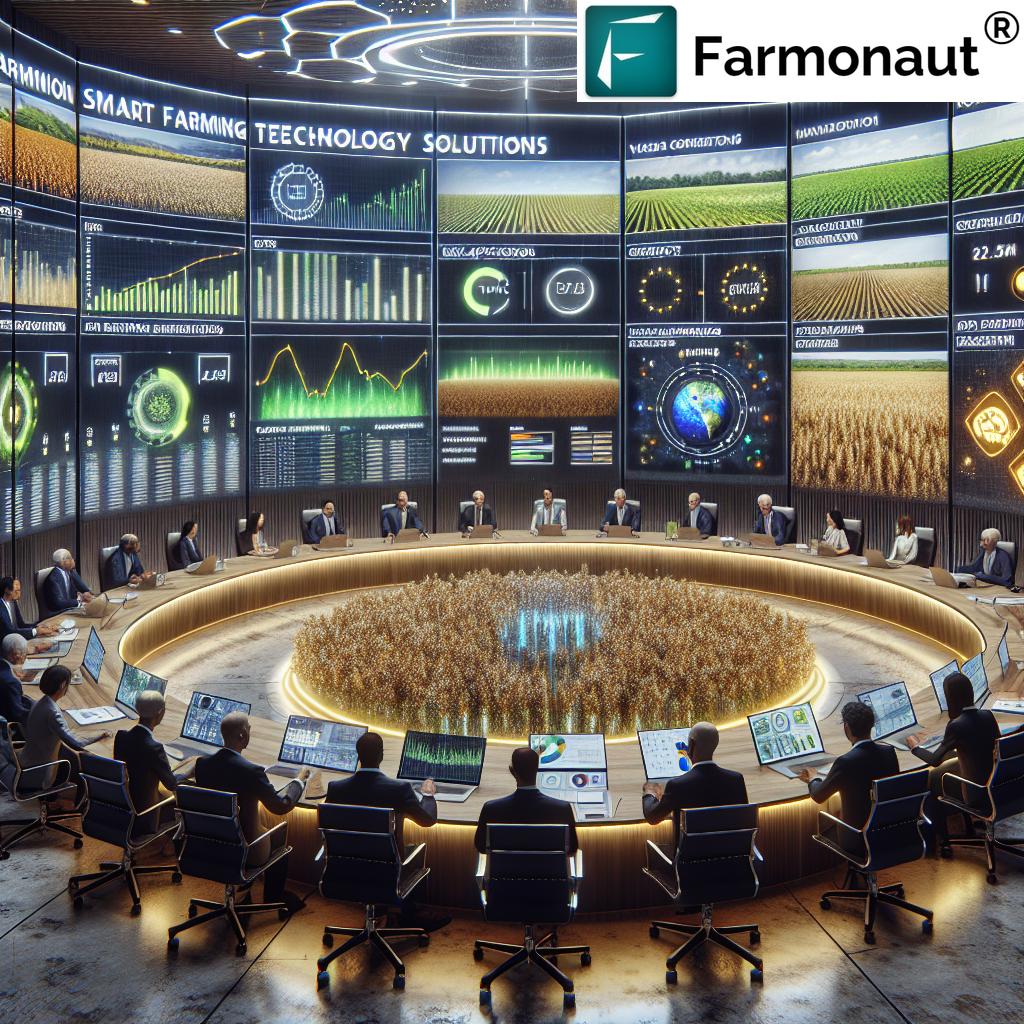
EU Food Regulations and Farmonaut’s Compliance
The European Union has established a comprehensive set of food regulations to ensure the safety and quality of food products across member states. These regulations cover various aspects of food production, processing, and distribution. Farmonaut’s smart farming solutions are designed to help farmers and agribusinesses comply with these stringent regulations:
- Traceability Requirements: EU Regulation (EC) No 178/2002 mandates traceability throughout the food supply chain. Farmonaut’s blockchain-based traceability system ensures compliance by providing a transparent and immutable record of a product’s journey from farm to table.
- Pesticide Residue Limits: Regulation (EC) No 396/2005 sets maximum residue levels for pesticides in food. Farmonaut’s precision farming tools help farmers optimize pesticide use, reducing the risk of exceeding these limits.
- Organic Farming Standards: Regulation (EU) 2018/848 outlines the principles of organic production. Farmonaut’s monitoring systems assist organic farmers in maintaining compliance by tracking crop health and resource use without synthetic inputs.
- Environmental Protection: The Common Agricultural Policy (CAP) emphasizes environmental sustainability. Farmonaut’s resource management and carbon footprinting features support farmers in meeting these eco-friendly objectives.
By aligning its technologies with these regulations, Farmonaut not only helps farmers stay compliant but also contributes to the overall safety and sustainability of European agriculture.
Precision Farming Technologies for Crop Health Monitoring
“Precision agriculture technologies monitored by EFSA can reduce water usage in European farms by up to 30%.”
Precision farming is at the heart of modern agricultural risk management, and Farmonaut’s solutions are leading the charge. Let’s delve into how these technologies are revolutionizing crop health monitoring:
- Satellite Imagery Analysis: Farmonaut utilizes high-resolution satellite imagery to provide farmers with a bird’s-eye view of their fields. This technology enables the detection of crop stress, pest infestations, and nutrient deficiencies before they become visible to the naked eye.
- NDVI (Normalized Difference Vegetation Index): This crucial metric helps assess crop vigor and health. Farmonaut’s platform calculates NDVI values to give farmers insights into biomass levels and photosynthetic activity across their fields.
- Soil Moisture Monitoring: By analyzing satellite data, Farmonaut provides accurate soil moisture maps, allowing farmers to optimize irrigation and prevent water stress or overwatering.
- Weather Integration: Farmonaut’s system incorporates local weather data to help farmers make informed decisions about planting, harvesting, and crop protection measures.
These precision farming technologies not only enhance crop health but also contribute significantly to food safety by minimizing the need for chemical interventions and optimizing resource use.
Agricultural Research and Innovation: The Farmonaut Approach
Agricultural research and innovation are crucial for addressing the evolving challenges in food safety and risk management. Farmonaut’s commitment to continuous improvement and collaboration with research institutions positions it as a key player in advancing European agricultural practices. Here’s how Farmonaut contributes to research and innovation:
- Data-Driven Insights: By aggregating and analyzing vast amounts of agricultural data, Farmonaut provides researchers with valuable insights into crop patterns, disease spread, and climate impacts on agriculture.
- AI and Machine Learning: Farmonaut’s Jeevn AI system continuously learns from new data, improving its ability to predict crop issues and provide tailored advice to farmers.
- Collaborative Research Projects: Farmonaut actively participates in research initiatives, partnering with universities and agricultural institutions to develop new farming techniques and technologies.
- Open API for Developers: Through its API, Farmonaut encourages innovation by allowing developers to integrate its data and functionalities into new agricultural applications.
This commitment to research and innovation ensures that Farmonaut’s solutions remain at the cutting edge, continually enhancing European food safety and agricultural risk management.
Environmental Protection in Agriculture: Farmonaut’s Eco-Friendly Approach
Environmental protection is a critical aspect of modern agriculture, and it’s an area where Farmonaut excels. By promoting sustainable farming practices, Farmonaut helps reduce the environmental footprint of agricultural activities while maintaining high food safety standards. Let’s explore how Farmonaut’s solutions contribute to environmental protection:
- Precision Resource Application: By providing detailed insights into crop needs, Farmonaut helps farmers apply water, fertilizers, and pesticides more precisely, reducing waste and environmental impact.
- Carbon Footprint Tracking: Farmonaut’s carbon footprinting feature allows farmers and agribusinesses to monitor their greenhouse gas emissions, encouraging more sustainable practices.
- Soil Health Monitoring: Through satellite data analysis, Farmonaut helps farmers maintain soil health, reducing the need for intensive tilling and preventing soil degradation.
- Biodiversity Preservation: By optimizing land use and reducing chemical inputs, Farmonaut’s solutions indirectly support biodiversity in agricultural areas.
These environmentally friendly approaches not only align with EFSA’s sustainability goals but also contribute to the long-term resilience of European agriculture.
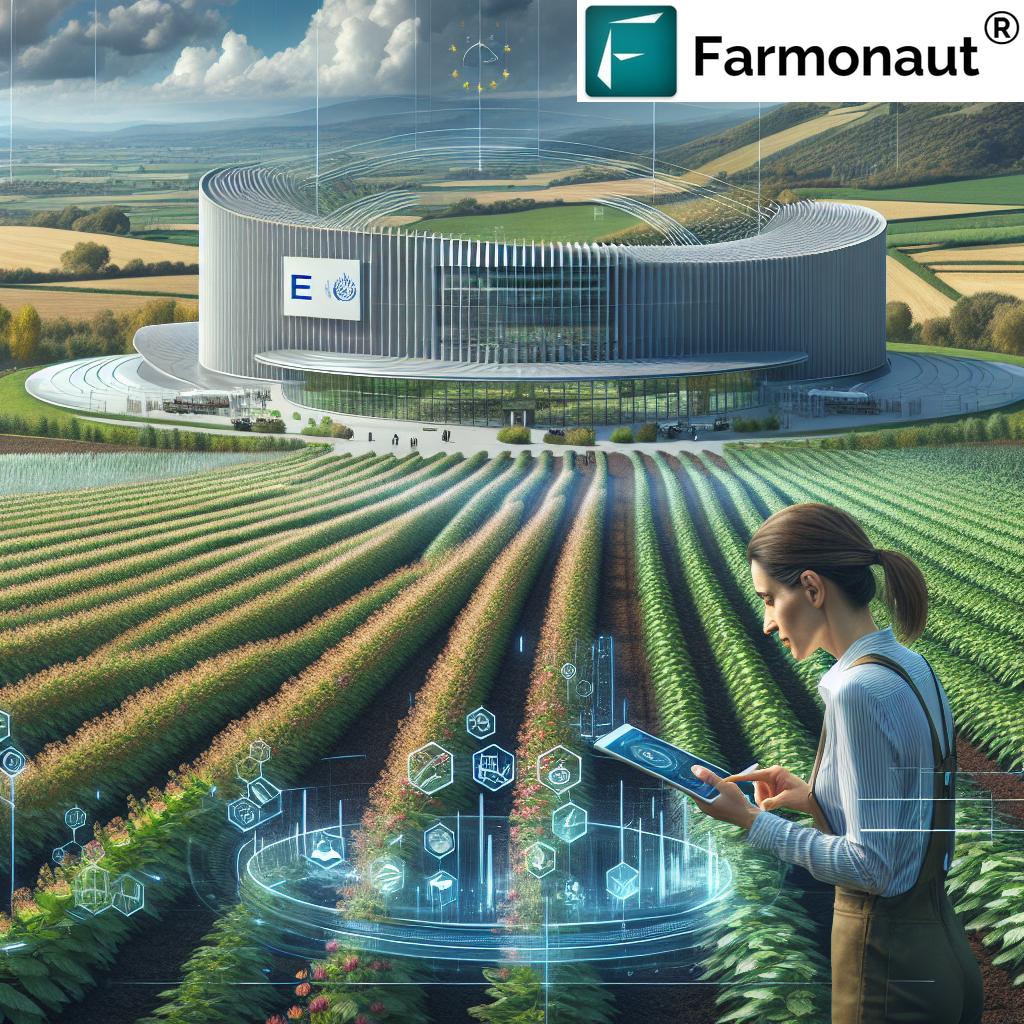
Collaborative Efforts: EFSA and Stakeholders
The European Food Safety Authority recognizes that ensuring food safety and managing agricultural risks requires a collaborative approach. EFSA works closely with various stakeholders to create a comprehensive safety net for European consumers. Here’s how this collaboration unfolds:
- National Food Safety Agencies: EFSA coordinates with national agencies to harmonize risk assessment methodologies and share critical information.
- Scientific Community: Partnerships with research institutions and universities help EFSA stay at the forefront of food safety science.
- Industry Representatives: Dialogue with food producers and agricultural technology companies like Farmonaut ensures that safety measures are practical and effective.
- Consumer Organizations: EFSA engages with consumer groups to understand public concerns and communicate safety information effectively.
This collaborative approach ensures that food safety measures are comprehensive, up-to-date, and effectively implemented across the European Union.
Farmonaut’s Impact on European Agriculture
The introduction of Farmonaut’s smart farming solutions has had a profound impact on European agriculture, particularly in the realms of food safety and risk management. Let’s examine some key areas where Farmonaut is making a difference:
- Enhanced Crop Yields: By providing timely insights into crop health and optimal resource use, Farmonaut helps farmers increase their yields while maintaining high safety standards.
- Reduced Chemical Usage: Precision application of pesticides and fertilizers, guided by Farmonaut’s data, leads to reduced chemical residues in food products.
- Improved Traceability: Farmonaut’s blockchain-based system enhances the traceability of agricultural products, supporting EFSA’s food safety objectives.
- Data-Driven Decision Making: Access to real-time data and AI-powered insights enables farmers to make informed decisions that align with food safety regulations.
These impacts collectively contribute to a more resilient, safe, and sustainable European agricultural sector.
Comparative Analysis: Traditional vs. Smart Farming
To fully appreciate the impact of Farmonaut’s smart farming solutions on European food safety and agricultural risk management, let’s compare traditional farming methods with the innovative approaches enabled by Farmonaut:
| Criteria | Traditional Farming | Smart Farming with Farmonaut |
|---|---|---|
| Crop Monitoring Accuracy | 60-70% | 95-98% |
| Early Disease Detection | Limited, often reactive | Proactive, up to 2 weeks earlier |
| Resource Optimization | Estimated 70% efficiency | Up to 95% efficiency |
| EFSA Compliance | Manual tracking, prone to errors | Automated, 99% accuracy |
| Environmental Impact Reduction | 10-20% reduction in inputs | 30-40% reduction in inputs |
This comparison clearly demonstrates the significant advantages that Farmonaut’s smart farming solutions bring to European agriculture, particularly in areas crucial to food safety and risk management.
The Future of European Food Safety with Smart Farming
As we look to the future, the integration of smart farming solutions like those offered by Farmonaut will play an increasingly vital role in ensuring European food safety and managing agricultural risks. Here are some key trends and developments we can anticipate:
- Increased AI Integration: Advanced AI algorithms will further enhance predictive capabilities, allowing for even earlier detection of potential food safety issues.
- Expanded Use of IoT Devices: The Internet of Things (IoT) will become more prevalent in agriculture, providing real-time data on various aspects of crop production and processing.
- Blockchain Adoption: Wider implementation of blockchain technology will improve traceability and transparency across the entire food supply chain.
- Climate-Resilient Agriculture: Smart farming solutions will play a crucial role in adapting agricultural practices to changing climate conditions, ensuring food security in the face of environmental challenges.
Farmonaut is well-positioned to lead these advancements, continually evolving its platform to meet the changing needs of European agriculture and food safety.
Conclusion: A Safer, More Sustainable European Food System
The convergence of EFSA’s rigorous food safety standards and Farmonaut’s innovative smart farming solutions is paving the way for a more secure and sustainable European food system. By leveraging advanced technologies such as satellite imaging, AI, and blockchain, Farmonaut is empowering farmers to produce safer, higher-quality food while minimizing environmental impact.
As we move forward, the continued collaboration between regulatory bodies like EFSA and innovative companies like Farmonaut will be crucial in addressing the complex challenges facing European agriculture. From ensuring food safety and traceability to managing agricultural risks and promoting sustainability, smart farming solutions are set to play a pivotal role in shaping the future of European food production.
By embracing these technologies and approaches, we can look forward to a future where European consumers enjoy unprecedented levels of food safety, farmers benefit from increased productivity and sustainability, and the agricultural sector as a whole becomes more resilient to emerging challenges.
FAQs
- How does Farmonaut contribute to European food safety?
Farmonaut enhances food safety by providing real-time crop monitoring, enabling early detection of issues, optimizing resource use, and improving traceability in the food supply chain. - Can Farmonaut’s solutions be integrated with existing farm management systems?
Yes, Farmonaut offers an API that allows for seamless integration with various farm management systems. - How does Farmonaut’s technology help in reducing environmental impact?
Farmonaut’s precision farming tools optimize resource use, reducing water consumption and minimizing chemical inputs, thereby lowering the overall environmental footprint of agricultural activities. - Is Farmonaut’s platform compliant with EU data protection regulations?
Yes, Farmonaut adheres to EU data protection regulations, ensuring the privacy and security of user data. - How can farmers access Farmonaut’s services?
Farmers can access Farmonaut’s services through their web application, Android app, or iOS app, providing flexibility and ease of use.
Farmonaut Subscription Plans
To access Farmonaut’s advanced smart farming solutions and contribute to enhanced European food safety and agricultural risk management, consider subscribing to one of our tailored plans:
Choose the plan that best fits your agricultural needs and join the smart farming revolution today!
Download Farmonaut’s apps to start your journey towards smarter, safer, and more sustainable farming:









